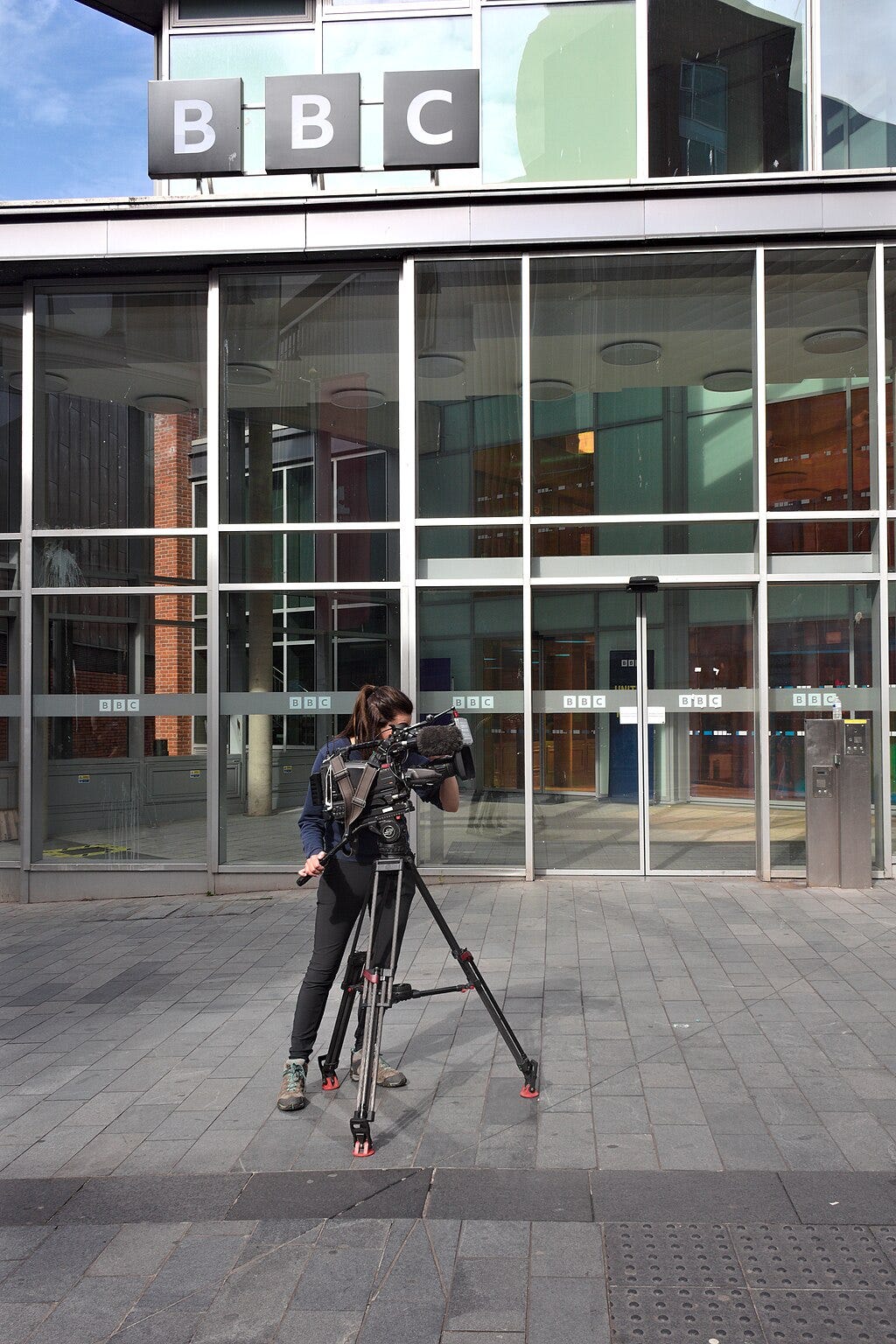News Round-Up: Kansas Takes Pfizer To Court Over Covid Vaccine, UK University's Woke Guidance To Lecturers and Climate Change Affecting Politicians' Cognitive Abilities
Every week, the editorial team of Freedom Research compiles a round-up of news that caught our eye, or what felt like under-reported aspects of news deserving more attention.
Over the past week, the following topics attracted our attention:
The US state of Kansas sued Pfizer for lying about the Covid vaccine.
UK university tells lecturers to address 'whiteness' and heterosexuality as problems.
Research claims climate change is reducing the cognitive ability of politicians.
Europe to mine more for 'green turnaround': aims to reduce dependence on China.
Fewer and fewer people around the world are interested in the news.
The US state of Kansas sued Pfizer for lying about the Covid vaccine
The US state of Kansas sued Pfizer on Monday, accusing the company of misleading the public about the Covid-19 vaccine and making false statements about both its risks and effectiveness, Reuters reports.
According to Kansas Attorney General Kris Kobach, during the Covid crisis, the drug company made multiple misleading statements about its vaccine, misleading the public at a time when Americans needed the truth. The lawsuit filed by the state alleges that the company violated the state's Consumer Protection Act and is now seeking unspecified money damages.
The lawsuit cites, for example, the fact that Pfizer concealed information about serious side effects of its Covid vaccine that it was aware of as early as 2021, when the vaccine was widely introduced. Among other things, the company failed to disclose information that it knew about the product's potential to cause pregnancy complications, including miscarriage, heart disease, etc.

Although all these problems have been confirmed retrospectively, Pfizer, as well as other pharmaceutical companies that produced the Covid vaccines, the supervisory authorities that supervised the companies, and the doctors and scientists who recommended these vaccines to everyone are not at all admitting their mistakes. It is also worth recalling that in 2021, the situation regarding Covid and the vaccines was extremely hysterical, with all the airwaves filled with talk of the safety and efficacy of the vaccines, while questioning the efficacy of the vaccines and raising critical questions about their safety earned both eminent scientists and the general public the label of misinfo spreaders and conspiracy theorists.
UK university tells lecturers to address 'whiteness' and heterosexuality as problems
History lecturers at the University of Liverpool have been advised to 'problematise' whiteness and heterosexuality in their seminars, The Telegraph reports. The advice has been given in guidance on how to 'diversify' and 'decolonise' the history curriculum, sent out to the academics in the university this week. The report, titled 'History Curriculum Diversity Audit', encourages lecturers to be creative in how they incorporate issues of race and gender into their teaching. As an example, it is suggested that in subjects that discuss race relations, being white is seen as problematic.
The diversity audit also suggests that too little is being taught in gender-related subjects about the 'queer history’ – ‘queer’ meaning any self-perception that considers not to be male or female. The report also specifically criticises the fact that there are no seminars on the problem of heteronormativity in the history curriculum. In woke-speak, heteronormativity indicates the belief that heterosexuality is the only natural sexual orientation.

The report also complains that it is not enough simply to include more authors of black, Asian, female, or non-binary origin, i.e. those who do not consider themselves male or female, in the course reading list. The fact that the range of authors is 'diverse' in the literature should, in the view of the authors of the report, also be discussed with the students.
In addition, the audit states that it is crucial to make seminars 'safe spaces' as topics such as race and gender can be emotionally charged and challenging for students. University department heads are urged to require lecturers to undergo compulsory training on 'inclusive teaching' to help them feel comfortable initiating and managing such conversations with students.
Research claims climate change is reducing the cognitive ability of politicians
Risto Conte Keivabu, a postdoc researcher at the Max Planck Institute for Demographic Research in Germany, and Tobias Wiedemann, an associate professor of political science at the University of Aarhus in Denmark, have published an article arguing that climate change is having a rather damaging effect on politicians. They say that warmer weather is affecting human cognitive performance, and based on their study, they argue that it is reducing the complexity of politicians' language and their ability to work. This is particularly true, they say, for older politicians.
Specifically, the researchers examined the impact of hot weather on politicians' use of language by comparing speeches made in the parliaments of eight countries – a total of seven million of them – with the weather conditions on the day they were made. “We find hot days reduce politicians’ language complexity, but not cold days,” they write in their paper. According to them, the results of the study show that political rhetoric depends not only on political circumstances and strategic choices but also on environmental factors. They also point out that the complexity of political speeches has been extensively studied and, looking at long-term trends, it has steadily decreased over the last 200 years. On the one hand, they argue, this is due to the rise of 'populist' movements that try to speak in a language that the electorate can understand, but on the other hand, they believe that environmental factors have been underestimated in the simplification of speech and the decline in cognitive abilities. “Overall, the study holds important implications on how climate change could affect human cognitive performance and the quality of political discourse,” the authors argue. This, in turn, they say, is a cause for concern, as a decline in politicians' performance can lead to negative outcomes in legislative decisions, budget planning, and everything else that MPs do. “Consequently, the influence of extreme temperatures on politicians’ cognitive performance, even within the climate-controlled environment of a parliament, could have far-reaching negative implications for society as a whole,” the researchers explain.
Of course, one might ask, is a research paper that draws such fundamental conclusions from its arbitrary correlation between outdoor air temperature and speech in the chamber of parliament of any value? Perhaps they could have asked the politicians what they were thinking about on a hot summer's day? Perhaps that they were not really bothered about doing things in parliament on this particular day and would have liked to dip their toes in the water somewhere and therefore just wanted to get things done quickly?
At the same time we of course know that the cognitive capacity of older people, including politicians, declines over time – the President of the United States, Joe Biden, is sadly an example of this. He was recently captured again in a state of confusion during the G7 summit in Italy. But it would probably be fair to say that rather than indicating climate change, it should encourage Biden to retire rather than keep wanting to stay at the helm of the United States for another four years.
In other words, the real value of research that arbitrarily attributes such things to climate change is highly questionable. In fact, the funding of such research is very likely to depend on the hypothesis that is being put forward in the first place, i.e. that climate change has some negative effect. The production of this kind of research and its poor quality was also discussed at length in the recent documentary film 'Climate: The Movie' by Martin Durkin.
Europe to mine more for 'green turnaround': aims to reduce dependence on China
The growing need for minerals, which are key to everyday electronic devices as well as wind turbines, solar panels, and batteries that are seen as indispensable for the transitioning away from a CO2-emitting economy, is pushing countries to mine more and more, according to oilprice.com.
Part of the current problem is that most of the market for essential minerals such as lithium, cobalt, nickel, rare earths, etc. is controlled by a few countries, with China and Russia controlling most of it. In the case of Europe, the main supplier is authoritarian China, which is the source of 90% of the minerals needed. The European Union's (EU) aim now is to break free of this dependence. “Our main concern is excessive dependencies, meaning dependency on a single source of supply,” Thierry Breton, the European Commissioner for Internal Market, says.
But what does getting rid of this dependency mean? If you don't want to be dependent on anyone for extraction, but you want the resources, you will probably have to extract them yourself. This is what the EU wants to do, and it is backed up by a European Commission regulation that requires that by 2030, 10% of the critical minerals used in Europe must be extracted and 40% processed here.

More mining is exactly what is going to happen, especially after the major discoveries of the necessary minerals in both Norway and Sweden. Environmentalists, however, are sceptical about such mining, fearing that it could cause significant environmental damage rather than the expected benefits.
Fewer and fewer people in the world are interested in the news
Fewer people are watching the news, saying it is depressing, relentless and boring, a global study suggests, reports the BBC.
The results of a study by Oxford University's Reuters Institute show that nearly four in ten people, or 39% of the population, avoid watching the news either sometimes or even often. In 2017, 29% of respondents did the same. In other words, avoidance of watching the news is now at a record high globally. At the same time, the number of people who are very interested in the news is on a downward trend. In 2017, 63% of respondents were interested in news, compared to 46% now. In the UK, for example, interest in the news has halved since 2015.

The survey covered nearly 95,000 people from 47 countries around the world and was conducted in January and February this year.



Where is his carer? He shouldn't be allowed out of his nursing home! Mick.